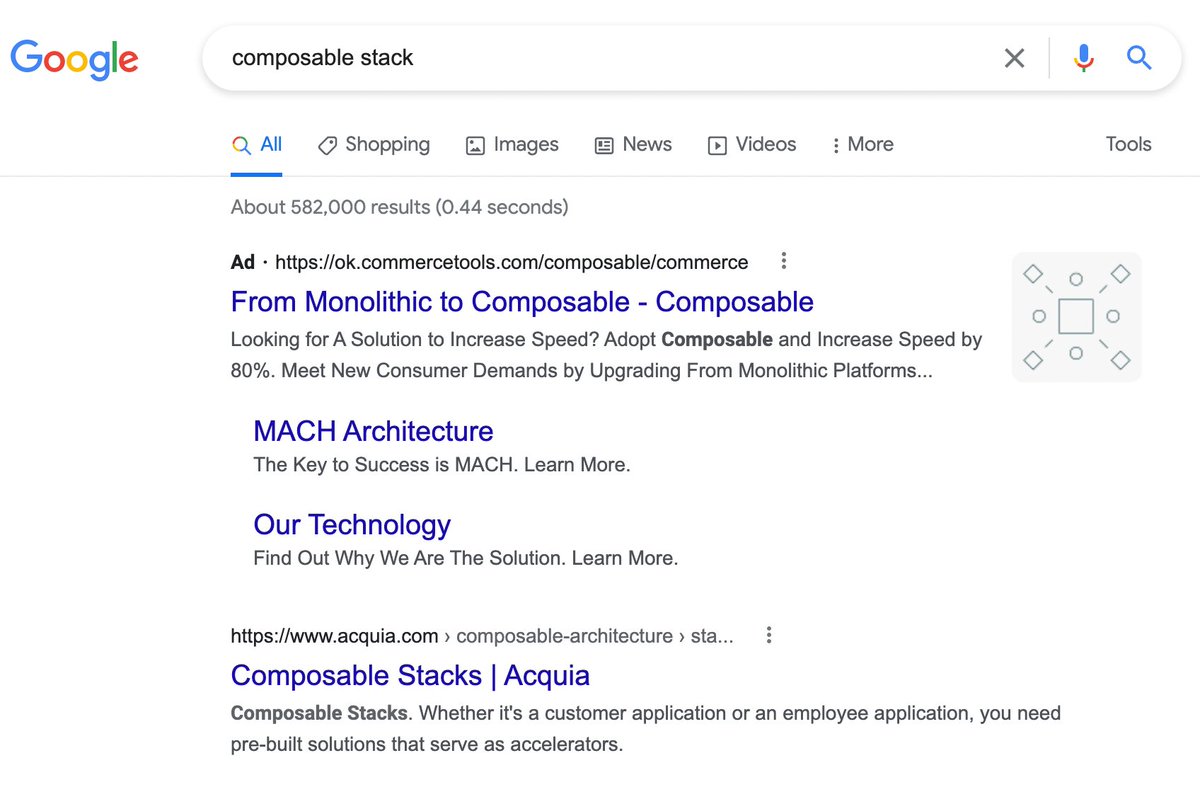
"Composable Stack" is new language that's emerging in our market to identify a possible successor to the existing DXP category. I highlighted this article on Monday that I thought was pretty good:
cmswire.com/digital-experi…
cmswire.com/digital-experi…
What comes up when you search? There's one ad slot (indicating not a ton of interest) and it's the @MACHAlliance, a cool industry group that's creating an alternate center of gravity around microservices and interoperable APIs (as opposed to monolithic old-line DXPs).
The top earned result is my frenemies in Boston. They've always been really sharp on analyst positioning which is something I admire. They got onto DXPs magic quadrant in 2019 and quickly got into pole position: 

So the fact that they've seen this shift coming tells me that the vibes are real.
Here's where it gets a little spicy though. I think it's pretty possible that their positioning is pretty far ahead of their product.
This is their Drupal Multisite product, which is IMO the opposite of what people want from a "Composable Stack." It's a template farm.
If you want to leverage the full power of Open Source towards composability, you need to be able to do different things on different sites. That way lies madness with multisite, and everyone kinda knows it.
pantheon.io/blog/drupal-mu…
pantheon.io/blog/drupal-mu…
If you accept Managed Hosting as your core architectural constraint, every CMS instance comes at a significant cost. Economics forces you to a small number of instances.
This leads to multi-siting, which cuts off all downstream benefits. Cookie cutter or bust. The alternative is mega-siting, where you make one piece of software try to be all things to all people, which kills value through complexity.
The worst of all possible worlds is both: a restrictive template-based site product that doesn't do what people want, but is also so convoluted and complecated that it takes specialists to operate. Womp womp.
WebOps is a better way. By throwing off the architectural constraint of servers, everyone can actually have their own website (fully), even if most people don't need that composability all the time:
pantheon.io/resources/drup…
pantheon.io/resources/drup…
This enables much more healthy processes for how people pursue impact through the web channel. It's ultimately not about the technology at all, but rather about how it supports people.
If you want more interminable debates between IT and Marketing (or engineering and product), get yourself a multisite. If you're ready to move on; think about adopting the #WebOps way.
• • •
Missing some Tweet in this thread? You can try to
force a refresh






